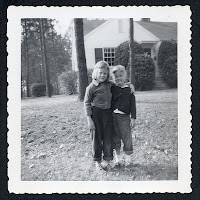Martha note: There's a tremendous amount of news coverage these days (including on NPR) about devastating head injuries incurred while playing football. I'm with Jason; I'm a football fan, both college and pro. But his essay made me think hard about what being a football fan really means.
Even so, I have a different reaction to football. More and more, it seems, players are going for the “big hit,” the crushing blow of the opponent that will end up on the highlight reels, increase their name recognition, increase their marketability, and even their monetary value.
If I speak in business terms, I do that on purpose: football, like any other sport, is a business, and, perhaps more than any American sport, the players are very aware of the business of selling themselves. When we see replay after replay, or go onto YouTube and watch, in slow motion, a brutal collision, we remember the player’s name. Some of us will cheer for him just a little more loudly; others will buy his jersey after his reputation as a “hard hitter” is established.
When there is a hard hit, though, I have the opposite reaction from many others: while they are cheering and high fiving and watching replay after replay, I can’t help but look away.
As a child, I was fascinated by football. I would sit in one chair, my father in the one beside me, and we would watch the players. I basically discerned the rules on my own about downs and penalties and the line of scrimmage and so on—you simply didn’t interrupt my father during a football game.
I would check out books from the library and read about the great football players: Elroy “Crazy Legs” Hirsch, Knute Rockne, Jim Brown, Raymond Berry, Johnny Unitas. These players seemed larger than life: people who went out on the field, and gave it everything they had. It was a sport. Though football at the time was a far more brutal sport, it was highly glamorized and sterilized for the consumption of a child.
 As a result, I decided to put my gangly, six foot four, one hundred and fifty pound frame to the test: I joined the junior varsity football squad at a local high school. I quickly discovered that football was far less than fun to play, when I managed to play at all.
As a result, I decided to put my gangly, six foot four, one hundred and fifty pound frame to the test: I joined the junior varsity football squad at a local high school. I quickly discovered that football was far less than fun to play, when I managed to play at all.Most of my brief two-year football career consisted of seeing or experiencing hazing, bullying, and sometimes sexual harassment, on both the part of the coaches and the players. I still clearly remember one coach stomping on my hand and pushing into the mud—it had rained all day that day—during stretching exercises. When I told him I’d rather quit the team, he poured a cup of Gatorade over my head. Stupidly, I stayed on the team and earned myself a few concussions along the way.
This isn’t sour grapes, though, this is reality. Go to a high school football game. Watch the players closely: many of them aren’t playing the sport of football; rather, they are doing the same thing their modern idols are doing: looking for the big hit. With the current emphasis in the NFL on preventing concussions, I have to wonder how we managed to get into this situation to begin with: one of the first rules players should be taught is to look at the person you’re tackling. It may not be the glamorous, pad cracking, jaw dropping hit, but it keeps your head up so you don’t get a concussion making the tackle. With our current spate of famous (or infamous) players in the NFL, I wonder if coaches in high schools and colleges have simply stopped teaching this simple rule, and themselves, congratulate the “big hits.”
Again, I continue to be a big fan of football, and I still enjoy watching the game on the big screen, especially when snow is falling outside and something is cooking in the oven. It’s classic Americana, and I’m not immune to it.
But there is something darker lurking in the background that makes football a more problematical pleasure for me these days: There are thousands of children watching the same game. For them, it is less a sport and more of a celebrity show. I hope, somewhere along the way, their parents or guardians or siblings balance out the glamour of the game with a heavy dose of the reality that exists away from the camera.
--Jason Barr, who won First Place in WMRA's Short, Short Story Contest, teaches at Blue Ridge Community College.















































